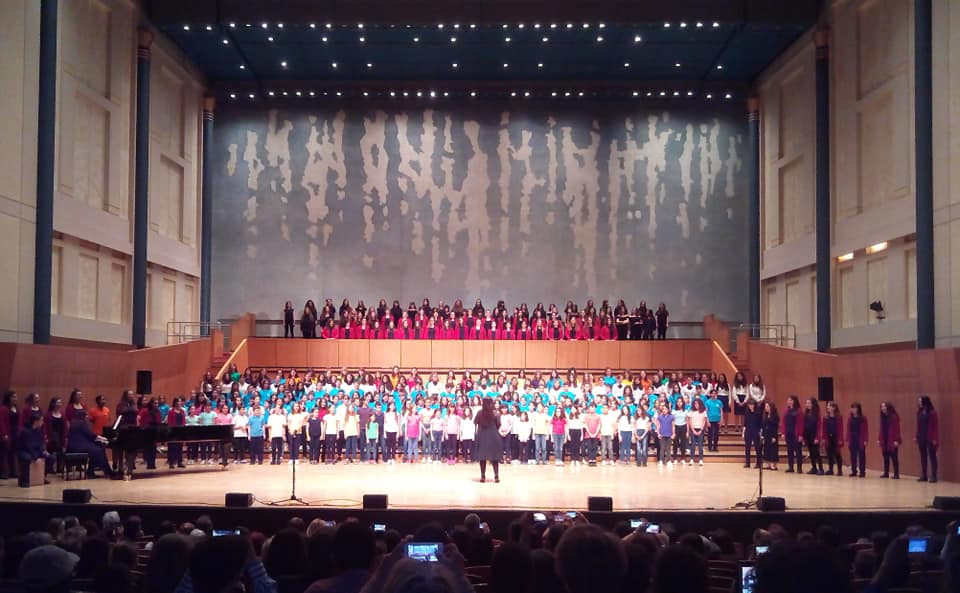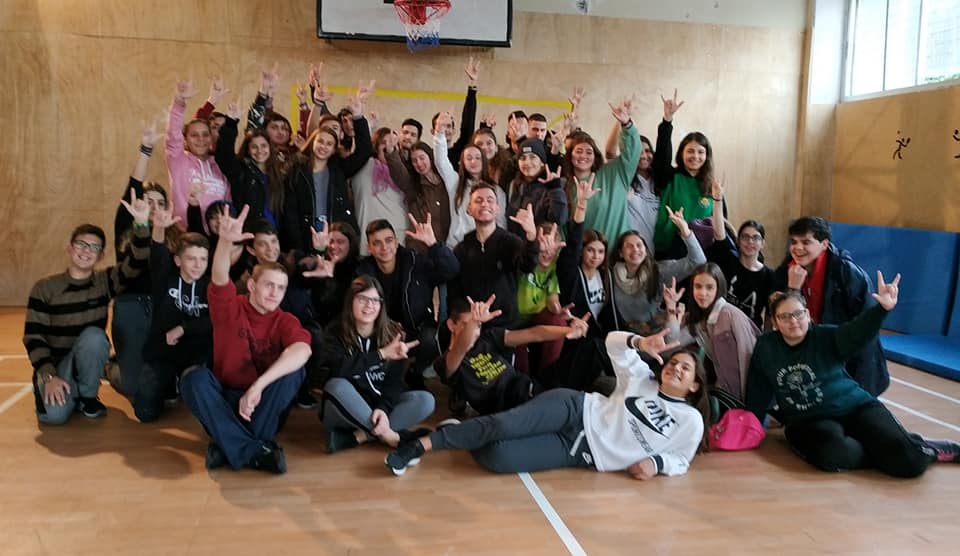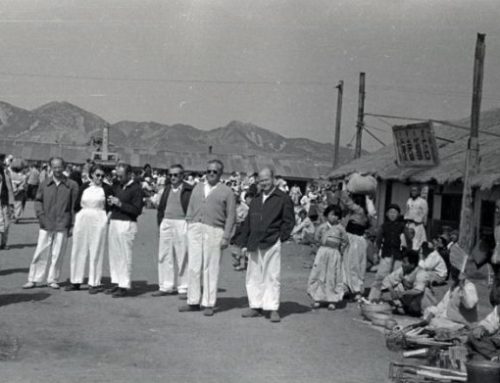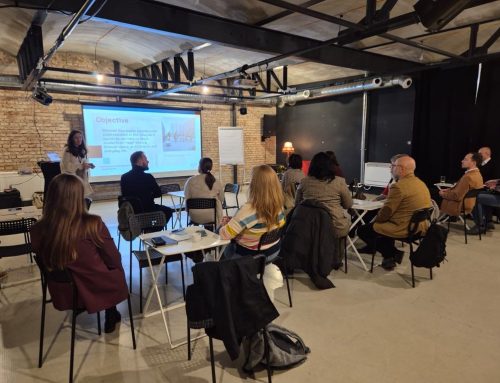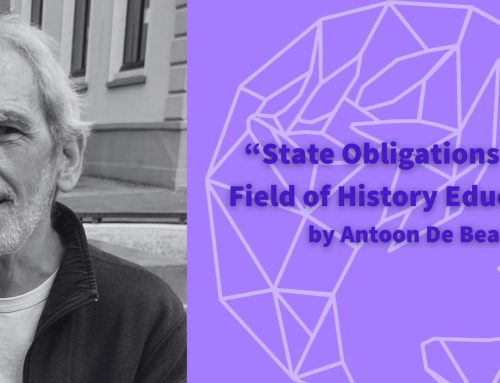According to UNICEF, about 50 percent of children with special needs do not participate in education, compared to only 13 percent of their peers without disabilities. At EuroClio, we believe that all children are entitled to quality education, irrespective of their needs or backgrounds. Anna Ivanova, EuroClio trainee and student at The Hague University of Applied Schiences, reached out to Triantafillia Tatsiopoulou, a teacher at the Special High School for the Deaf and Hard of Hearing in Thessaloniki, Greece, to learn about her experience of working in a school for children with special needs.
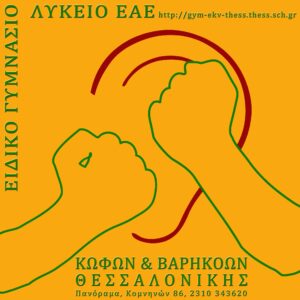
Anna: Tell us about yourself and the school you teach in.
Triantafillia: I teach Ancient and Modern Greek, History and Latin at the Special High School for the Deaf of Thessaloniki. Our school is one of the three schools in Greece for students with hearing impairments, and the only one in the north of the country. It is very small: we only have about 30 students, aged between 13 and 20 years old. All of the students have some form of hearing loss, some are profoundly deaf. One or two students have a low form of autism. Apart from that, our students are happy and clever, like all children in all other schools.
Anna: Is your school so small in size because you cannot admit more students or because there are no students that want to join?
Triantafillia: Unfortunately, not that many students want to join our school. There are approximately 200 children with hearing loss in Thessaloniki, ranging from average to profound. Yet, our school only has about 30 pupils.
There are multiple reasons for that. In Greece, when a child has some kind of disability, they are required to undergo a medical examination, where a doctor advises the parents on how to approach the child’s condition. Usually, they are advised to start with speech therapy as soon as possible, which is very basic for everyone with hearing loss. Some doctors recommend them to choose a general school instead of a special one, so the child can stay in a familiar environment. Most parents follow this advice and send their children to a general school, where they are surrounded by other children from the neighbourhood and are not excluded from living a ‘normal’ life. In some general schools, pupils get assistance from school integration departments or special needs support teachers, who help them understand the material better. However, this kind of support is not offered everywhere, so hearing impaired students without it tend to be left behind and struggle with learning.
Another reason is the stigma surrounding special schools. Some parents find it challenging to accept that their child has a disability, hence they prefer their children to attend a general school. A disability like hearing loss is invisible, so it can be hidden. That is why some parents choose to hide it instead of having to deal with the shame and stigma of a special school. Moreover, many parents are prejudiced against sign language. They forbid their children to use it and meet other deaf pupils who do so, hence they tend to prevent their children from attending a school that supports sign language.
Furthermore, our school is located in a small village near Thessaloniki, and it is the only one in the north of Greece. For some students, it may be inconvenient to commute far to school, so they choose a general one that is closer to their home.
Lastly, sometimes, parents of hearing-impaired children simply don’t even know that our school exists. Since doctors generally advise them to attend a general school, there is no way for parents to find out about us, unless they do the research themselves. We try to inform the parents through Deaf Communities, but we find it difficult to reach the parents of such children because we cannot know who they are.
Anna: What is it like to work with these pupils, do you generally have a good relationship with them?
Triantafillia: If you were able to visit us, you would see that our school is not different from the rest. We follow the general curriculum, meaning that the material is the same. Our school has strict rules that all students must follow. This is due to the fact that some of the pupils, despite being very clever, have not developed the language well enough. Because of that, they struggle to express their thoughts or feelings, so in a way, the teacher has to guess what the student actually means. At the same time, some students are less proficient in sign language than others: they lack the full development of a first language, so developing a second language, the Greek language, poses some complications. This, in turn, makes it difficult for them to communicate with others.
Generally, we have a great relationship with the students, and they enjoy coming to classes and participating in other activities. Our school is very ‘hugging’ – deaf people enjoy physical contact, like hugging and touching. As well as jokes that they have in sign language, it is part of their culture. Our pupils love coming to school. We also have a boarding school which operates with many problems. Normally, we barely have absences. Although it is very different, I really like working with our students. It is a different, more sensitive form of communication, and it brings me joy.
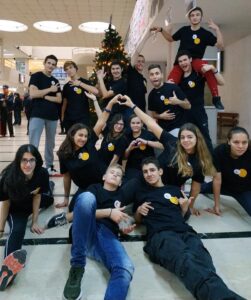
Anna: Are there particular teaching techniques employed at your school?
Triantafillia: Teaching in sign language is part of the school’s tradition, as it is part of the deaf culture. Deaf and hard of hearing pupils have very different backgrounds and are very diverse in their ways of communication and learning. For this reason, our school supports both Greek sign language and Greek oral and written language. We always try to do the best for every child, hence we never force students to use Greek sign language if they are not comfortable with it or don’t know it well enough. If a child wants to learn Greek sign language, other students help to teach them in everyday life, through informal conversations.
We always talk to our students when teaching. Some of them are hard of hearing, which means that they are still able to use the language and partly hear. Moreover, all students, including those that are profoundly deaf, automatically read the lips of the teachers. That is why with the current Covid-19 measures in place, teachers use a face shield instead of a mouth mask: students have to see the mouth and the lips.
As for history teaching, I prefer to take the pupils to the library. Students learn much better when they are able to see the material, so we strive to make the education highly visual. We make great use of smart boards to show visual aid content and videos. When working in class, students are divided into groups, where they can interact and work together on worksheets. The challenge for the teacher is to keep the students’ attention and keep them engaged, either through asking questions or writing something on the board. It is important to motivate them to get them involved in learning about the past.
Anna: What teachers work in your school? What kind of teacher training is required?
Triantafillia: In Greece, all teachers start from a general class in a general school. I had been teaching for about 7 years before I was transferred to work in this school. I liked it a lot, so I decided to stay.
In order to work in a special school, educators are required to have a postgraduate degree in special education. Other than that, knowledge of sign language is obligatory in our school, and most of us know Braille. A lot of people want to work in special education, so all of our teachers have chosen to work here.
Anna: Do you think that you get more work than teachers in general schools?
Triantafillia: Teachers in general education get more pressure from the Ministry of Education, as they have to stick to the curriculum and follow certain rules. Even though our school follows the general curriculum, we have flexibility due to their special needs. Therefore, our teachers have to be creative, come up with their own lesson plans or develop worksheets. We have to work hard to come up with ideas that will help students understand the material and expand their knowledge. So, I would not say that we have more work, but we definitely have a different kind of work.
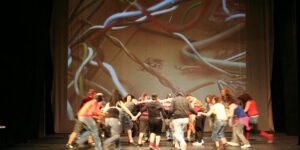
Anna: What kind of extracurricular activities does take place in your school?
Triantafillia: Every year, we run multiple programs and projects in our school. One of our best projects is the Sign Choir, which made its first appearance in 2014, introducing a new kind of singing through signs. Collaborating with other choirs or music bands, the Sign Choir is interpreting the lyrics in signs, offering a new perspective and showing that music is a global way of communication. Students really like this project and always enjoy being involved in it.
The year 2013 was dedicated to the 150-year anniversary of Greek poet Konstantinos Kavafis. Two of our students composed poems in sign language, inspired by his poems “An old man” and “Candles”. The students transferred all these ideas in sign language, making the poems visible.
One of the most innovative school activities was the making of a short film, inspired by the silent movies. “The Mess” was the result of collaboration between our school and the local Lyceum of Panorama Thessaloniki, with the help of students of the School of film of the University of Thessaloniki. A reunion of a class gives the chance to one of the classmates to make amends in life, yet an unexpected incident takes place that leads to a big mess.
Lastly, the school has had the chance to work with Signdance Collective, a touring performance company with a culturally diverse team of experienced deaf and disabled artists at the helm. The company directors pioneered the “sign dance theatre”, a fusion of sign theatre, dance, and live original music. In 2009, the Signdance Collective designed a third performance, with the children dancing and singing at the same time, accompanied by live music. Called “Dancing with ….sign”, the theme was a neighborhood, groups of children getting together and the relationships between them.
The school also has a dance team, The Dream Dancers. Our students have done multiple dance performances, like hip-hop or traditional Greek dances. Last year, they appeared in Reflection of Disability on Art, a festival about people with special needs and their abilities in art.
Students love being involved in these kinds of projects and initiatives. For us, it is important to show that they are in no way different from other children: they are able to do the same things as others. It is important for them to feel that they have the same advantages and even disadvantages as everyone else. We try to achieve that through these programs and activities. Even though there are many obstacles, we try our best.
